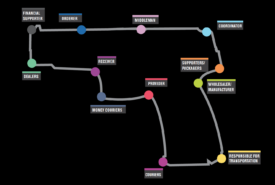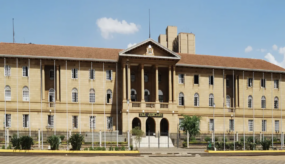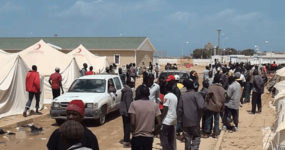Event Details
Posted on 10 Jun 2016
 Tuesday Reitano, Head of the Secretariat of the Global Initiative, co-chaired a seminar at the Academy of European Law (ERA) entitled “Countering Migrant Smuggling: towards a more comprehensive approach”, from 9-10 June 2016, in Trier, Germany.
Tuesday Reitano, Head of the Secretariat of the Global Initiative, co-chaired a seminar at the Academy of European Law (ERA) entitled “Countering Migrant Smuggling: towards a more comprehensive approach”, from 9-10 June 2016, in Trier, Germany.
The seminar brought together some 40 EU law enforcement officers, ministry officials, judges, prosecutors and members of the international community involved in the migrant response.
The Global Initiative publication “Survive and Advance: the Economics of Smuggling Refgees and Migrants into Europe” featured as part of the keynote opening panel, and set a framework for the group to understand migrant smuggling not only as a criminal justice issue, but as a market driven industry that can take a range of forms, and includes a wide variety of players, many of whom are migrants and refugees themselves.
Additional presentations were given by Europol, IOM, Frontex, the EEAS and EuroJust, as well as a number of law enforcement or judicial focal points from countries at the front line of the EU migrant crisis.
Profit-seeking criminals smuggle migrants across borders, making it one of the most profitable forms of transnational crime in Europe, with a coordinated judicial and law enforcement response across the EU insufficient to deal with this growing problem. This seminar will look into the various aspects that need to be considered when dealing with migrant smuggling in order to identify the actions that can be taken to enhance cross-border judicial and law enforcement cooperation in this field.
While both the presentations and discussions highlighted how much more significant and coordinated the EU response has become, noting in particular the increasing number of joint mechanisms that have been developed and appear to be functioning well. However, at the same time, they raised a number of critical challenges to criminal justice practitioners seeking to be effective within the paradigm of contemporary migration and the smugglers that facilitate it. These include:
- The overwhelming level of prevailing demand for the services of smugglers and limited number of ‘safe and legal’ alternatives available;
- The highly informal context in which the majority of both migration and smuggling is taking place;
- The weak basis for international, law enforcement and judicial cooperation in key states;
- The extent to which smuggling markets often include, and therefore have the legitimacy of, local communities;
- The widespread, almost endemic, levels of corruption that undermine efforts.
In conclusion, the participants recognised that criminal justice efforts can only be a limited part of a comprehensive response. Often critical decisions are taken at the political level, and greater engagement is needed with third countries outside the EU. The challenges remain significant.
Find the flyer here: ERA Seminar on migrant smuggling – flyer and schedule
For further questions, please contact the organiser Mr. Ramin Farinpour of the Academy of European Law (rfarinpour@era.int) and visit ERA’s event page.



